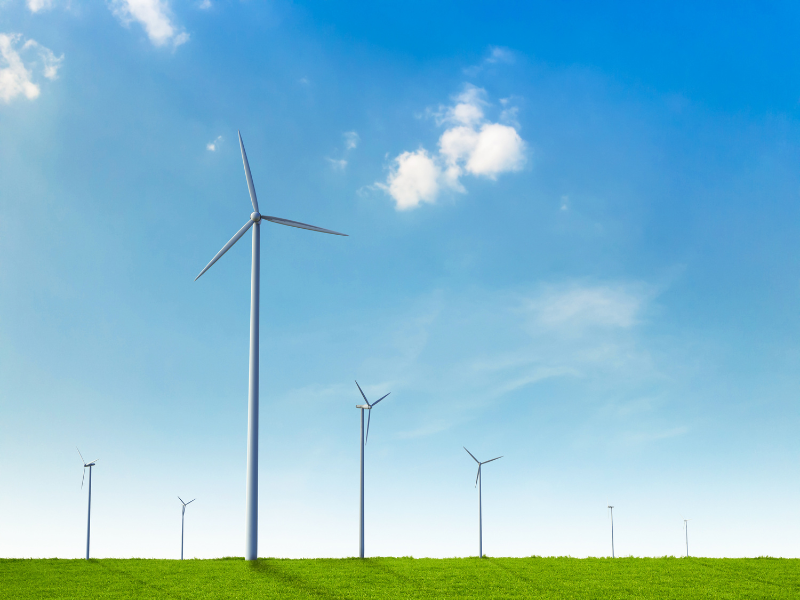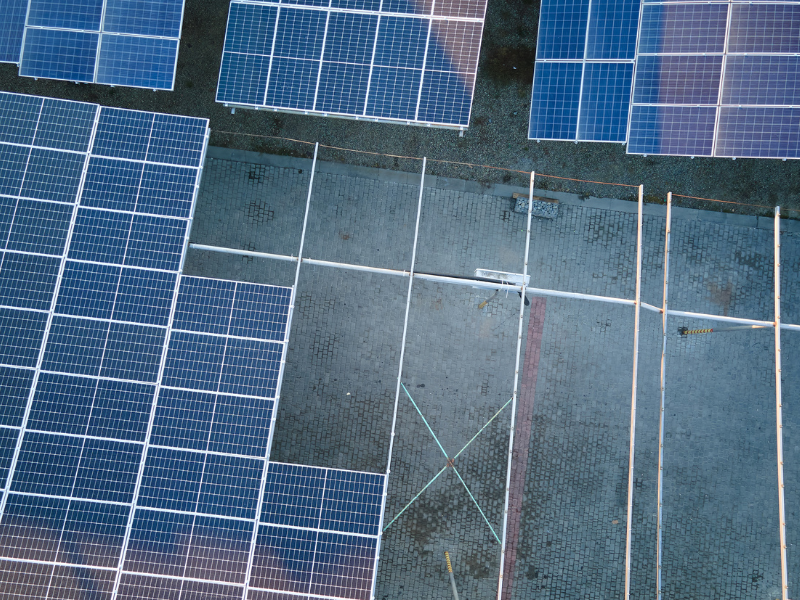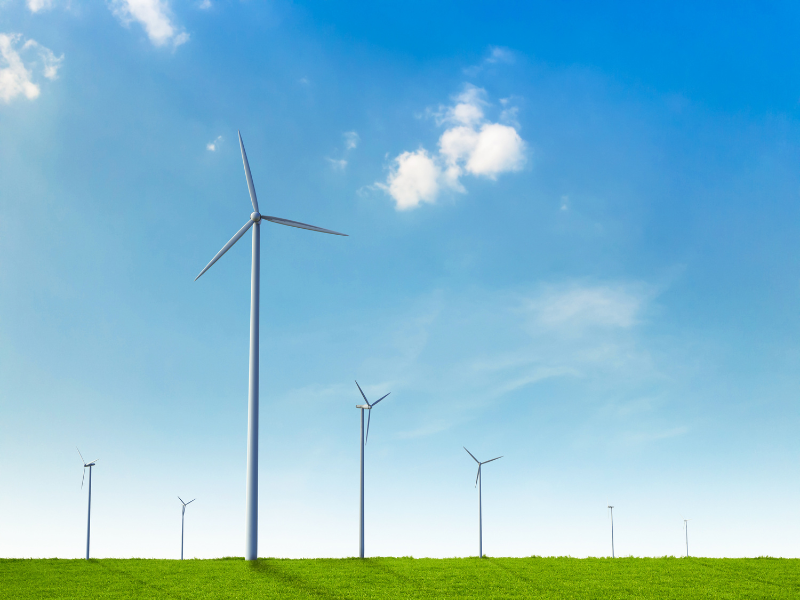In this era of rapidly advancing technology and increasing environmental concerns, the demand for eco-friendly power generation has never been greater. As we strive towards a sustainable future, it is crucial to explore and implement alternative methods of generating power that have minimal impact on the environment. In this comprehensive article, we will delve into the world of eco-friendly power generation, uncovering its significance, benefits, and the various technologies and practices that are revolutionizing the energy landscape.
Ecofriendly Power Generation: Embracing a Sustainable Tomorrow

Sustainable power generation is the key to reducing greenhouse gas emissions and mitigating the detrimental effects of climate change. As nations worldwide face the urgent need to transition to cleaner energy sources, eco-friendly power generation offers a promising solution. By harnessing renewable resources, such as solar, wind, hydro, and biomass, we can generate power while minimizing our carbon footprint. Let’s explore the different avenues of eco-friendly power generation and their environmental benefits.
Solar Power: Illuminating the Path to Sustainability

Harnessing the immense power of the sun, solar energy has emerged as a leading contender in the realm of eco-friendly power generation. LSI Keywords: solar panels, photovoltaic cells, solar thermal systems.
Solar power is derived from the direct conversion of sunlight into electricity, achieved through the use of solar panels and photovoltaic cells. These devices capture the sun’s rays and convert them into clean, renewable energy. The adoption of solar power not only reduces greenhouse gas emissions but also offers numerous economic benefits, such as lower electricity bills and job creation.
Benefits of Solar Power
- Reduction in Carbon Footprint: Solar power systems produce electricity without emitting harmful greenhouse gases, leading to a significant reduction in carbon dioxide emissions.
- Solar energy is environmentally friendly, making it a crucial aspect of eco-friendly power generation.
- Cost-effectiveness: Although the initial investment for installing solar panels may be high, the long-term financial benefits outweigh the upfront costs.
- With the dwindling prices of solar panels and various government incentives, harnessing solar power has become increasingly affordable.
- Energy Independence: By generating your own solar power, you become less reliant on traditional electricity grids, providing greater energy security and independence.
Wind Power: Harnessing the Breezes for Renewable Energy

The power of wind has been harnessed for centuries, and today, wind turbines have become a common sight across landscapes worldwide. LSI Keywords: wind turbines, wind farms, wind energy.
Wind power involves capturing the kinetic energy of wind and transforming it into electricity through the use of large turbines. This form of eco-friendly power generation has experienced significant advancements and provides a renewable source of energy without harming the environment.
Key Advantages of Wind Power
- Clean and Abundant: Wind power is a clean and abundant energy source that produces no greenhouse gas emissions or air pollutants.
- Harnessing wind energy helps combat climate change and improves air quality.
- Job Creation and Economic Growth: The wind power industry has the potential to create numerous job opportunities and foster economic growth in local communities.
- Wind farms require technicians, engineers, and maintenance staff, offering employment prospects in rural and coastal regions.
- Scalable and Flexible: Wind farms can range from small installations to large-scale projects, making wind power a scalable solution that can meet varying energy demands.
- Additionally, wind turbines can be located offshore, providing additional renewable energy options.
Hydro Power: Tapping into the Power of Flowing Water

Water, nature’s most powerful force, presents immense potential for eco-friendly power generation through hydroelectricity. LSI Keywords: hydroelectric power, dams, water turbines.
Hydropower involves harnessing the energy from flowing or falling water to generate electricity. By directing the force of water through turbines, this renewable energy source has the capacity to supply a significant portion of our power needs while having minimal environmental impact.
The Environmental Advantages of Hydroelectric Power
- Renewable Energy Source: Water is a renewable resource, making hydro power a sustainable alternative to fossil fuel-based electricity generation.
- Dams and other hydroelectric installations generate power without depleting water resources over the long term.
- Reduced Greenhouse Gas Emissions: Hydro power produces minimal greenhouse gas emissions, significantly contributing to the overall reduction in carbon dioxide emissions.
- It is estimated that hydroelectric power plants can offset millions of tons of carbon dioxide each year.
- Water Management: Hydropower projects also facilitate water management, providing a steady and reliable source of water for irrigation, drinking, and industrial purposes.
Frequently Asked Questions (FAQs)
Q: Is eco-friendly power generation only suitable for developed nations?
A: No, eco-friendly power generation is suitable for all nations, regardless of their level of development. In fact, developing countries can benefit tremendously from adopting sustainable energy practices, as it can provide access to electricity in remote areas while minimizing the environmental impact.
Q: Are there any drawbacks to eco-friendly power generation?
A: While eco-friendly power generation offers numerous benefits, it is not without limitations. Some renewable energy sources, such as solar and wind power, are intermittent and can be affected by weather conditions. Additionally, the initial installation costs of certain technologies may be high, although these costs are gradually decreasing with advancements in technology and economies of scale.
Q: Can individuals contribute to eco-friendly power generation?
A: Absolutely! Individuals can make a significant impact by adopting energy-efficient practices in their daily lives, such as using energy-efficient appliances, reducing energy consumption, and embracing renewable energy sources, such as rooftop solar panels or community solar projects.
Q: How does eco-friendly power generation promote sustainable development?
A: Eco-friendly power generation is closely linked to the concept of sustainable development. By reducing greenhouse gas emissions, minimizing reliance on fossil fuels, and protecting natural resources, it paves the way for a more sustainable and equitable future. Additionally, it fosters economic growth, job creation, and enhances energy security.
Conclusion
Eco-friendly power generation is the cornerstone of a sustainable future. By harnessing the power of the sun, wind, water, and other renewable resources, we can reduce our carbon footprint and minimize the impact of climate change. Solar, wind, and hydro power are just a few examples of the technologies revolutionizing the energy landscape and paving the way for a cleaner, greener tomorrow. As individuals, communities, and nations come together to embrace eco-friendly power generation, we take a giant leap towards a brighter and more sustainable world. Let us join hands and power the future with eco-friendly innovation!

